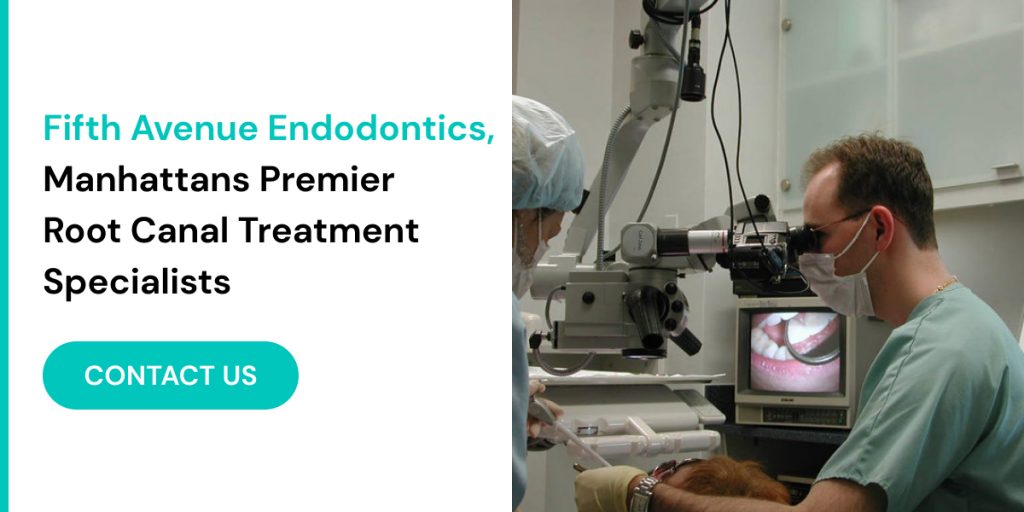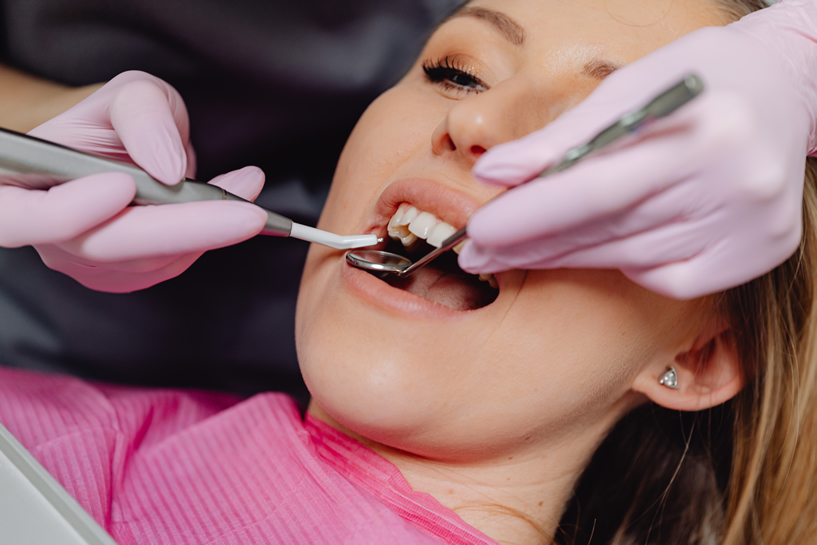Bruxism, commonly known as teeth grinding, poses significant challenges for individuals in Manhattan who have undergone root canal treatment. This habitual grinding and clenching of teeth can exert immense pressure on dental restorations, including root canal-treated teeth, potentially leading to fractures or premature wear.
Teeth grinding is often involuntary and can occur during sleep or subconsciously throughout the day. This repetitive motion subjects the teeth to forces far beyond normal chewing, which can gradually wear down dental crowns and compromise the structural integrity of root canal-treated teeth. Over time, this wear and tear increases the risk of complications such as cracked restorations or even the need for retreatment.
Patients who experience bruxism following root canal treatment should consult with their endodontist, such as Dr. Iofin at Fifth Avenue Endodontics, to discuss preventive measures. Custom-fitted night guards are a common recommendation to cushion the impact of grinding and protect dental restorations from excessive force. Additionally, addressing underlying stress or anxiety, often associated with bruxism, can contribute to managing this condition effectively.
Understanding these challenges and proactive steps can help patients preserve the longevity of their root canal treatments and maintain optimal oral health.
Understanding the Impact
Root canal treatment is a specialized dental procedure aimed at saving a tooth that is severely infected or decayed. It involves meticulous steps, starting with the removal of infected pulp tissue from within the tooth, followed by thorough cleaning, shaping, and sealing to prevent further bacterial invasion. The final step usually involves placing a crown or filling to restore the tooth’s functionality and strength.
However, for individuals who suffer from bruxism, this otherwise successful treatment can face challenges. Bruxism involves the involuntary grinding or clenching of teeth, often during sleep or stressful periods. This habitual behavior can exert significant pressure on dental restorations, including those from root canal procedures.
The continuous grinding motion places excessive stress on dental crowns, which are commonly used to cap and protect root canal-treated teeth. Over time, this can lead to gradual wear and tear of the crown material, compromising its integrity. Furthermore, the repetitive force can weaken the overall tooth structure, potentially causing micro-cracks or fractures in the restored tooth. These micro-cracks not only jeopardize the structural stability of the tooth but also increase the risk of reinfection or the need for additional dental interventions.
Dr. Iofin, a trusted expert at Fifth Avenue Endodontics, emphasizes the importance of recognizing these potential challenges early on. Patients in the Manhattan area who experience bruxism following root canal treatment are encouraged to schedule regular check-ups to monitor the condition of their dental restorations. By detecting any signs of wear or damage promptly, Dr. Iofin can recommend appropriate preventive measures to preserve the longevity of the root canal treatment and maintain optimal oral health.
While root canal treatment effectively addresses serious dental infections, the presence of bruxism requires careful consideration. Understanding how teeth grinding can impact dental restorations underscores the importance of proactive care and personalized advice from experienced professionals like Dr. Iofin at Fifth Avenue Endodontics.

Mitigating Damage: Expert Recommendations
Dr. Iofin of Fifth Avenue Endodontics understands the challenges that bruxism poses to root canal-treated teeth and emphasizes proactive measures to safeguard against potential damage:
- Custom Night Guards: One of the most effective ways to protect root canal-treated teeth from the effects of bruxism is through custom-fitted night guards. These devices are specially designed to fit snugly over the teeth, providing a protective barrier. By absorbing the forces generated during grinding, night guards help to distribute pressure more evenly and reduce strain on dental restorations. This not only preserves the integrity of the dental crown or filling but also minimizes the risk of wear and tear over time.
- Stress Management: Addressing the underlying causes of bruxism, such as stress or anxiety, is essential in managing the condition and preventing further damage to teeth. Dr. Iofin recommends various stress management techniques that can complement dental care. Practices like mindfulness meditation, relaxation exercises, or professional counseling can significantly reduce the frequency and intensity of teeth grinding episodes. By incorporating these strategies into daily routines, patients can alleviate grinding habits and protect their dental health.
- Regular Dental Check-ups: Routine visits to Fifth Avenue Endodontics for dental check-ups are crucial for monitoring the condition of root canal-treated teeth. During these appointments, Dr. Iofin examines the teeth and dental restorations closely to detect any signs of wear, cracks, or other damage early on. Timely intervention allows for prompt treatment and preventive measures to be implemented, which can help avoid complications such as tooth fractures or the need for additional dental procedures. These regular check-ups not only ensure the longevity of root canal treatments but also contribute to maintaining overall oral health.
By integrating these expert recommendations into daily oral care routines, patients can effectively mitigate the potential damage caused by bruxism to root canal-treated teeth. Dr. Iofin and the team at Fifth Avenue Endodontics are committed to providing personalized care and guidance to support patients in preserving their dental health and enhancing their quality of life.
For more information on protecting root canal-treated teeth from bruxism-related damage or to schedule a consultation, contact Fifth Avenue Endodontics today. Your smile deserves expert care tailored to your unique needs and challenges.

Conclusion
In conclusion, Manhattan root canal treatment offers a vital solution for restoring both the functionality and health of a compromised tooth. However, the presence of bruxism introduces ongoing challenges that can affect the long-term success of these treatments. Understanding how teeth grinding impacts dental restorations underscores the importance of proactive care.
Dr. Iofin of Fifth Avenue Endodontics emphasizes the significance of early intervention and personalized strategies to mitigate the effects of bruxism on root canal-treated teeth. By incorporating custom night guards, addressing stress through various techniques, and scheduling regular dental check-ups, patients can significantly reduce the risks associated with bruxism.
For more personalized advice on managing bruxism or to schedule a consultation with Dr. Iofin, contact Fifth Avenue Endodontics today. Our team is dedicated to providing expert care tailored to your unique oral health needs, ensuring your smile remains healthy and vibrant for years to come.

